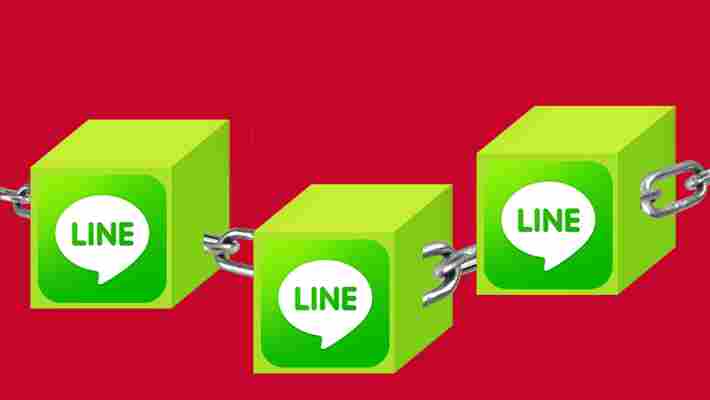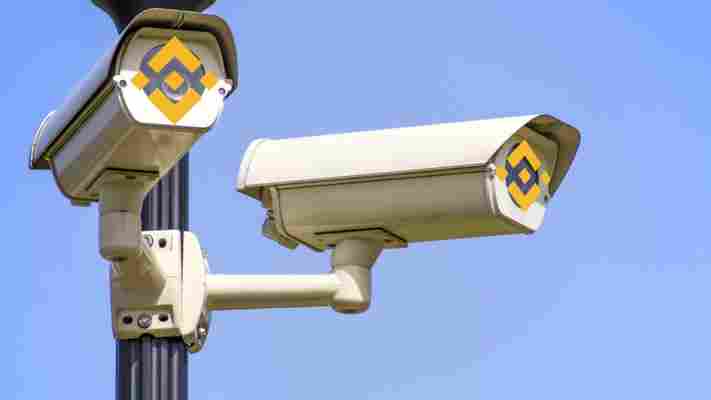Tokyo-based messaging titan Line is gearing up to launch its own cryptocurrency exchange desk – but the service will not be immediately available to all users.

In an announcement on its website, the company said its new undertaking, called BITBOX, is set to take off in July. Unfortunately, the service will not be available to users in the US and Japan, which is where the messenger was initially founded. But this is hardly surprising in light of the recent regulatory crackdowns in the country.
Indeed, leading exchange desk Binance also opted to move its operations out of Japan not so long ago (even though it initially denied that a move might be necessary).
BITBOX will offer at least 30 different cryptocurrencies and support 15 languages. Ironically, Japanese won’t be one of these languages.
“ Line strives to create and provide innovative financial services unique to LINE in order to close the distance between people and money,” the company wrote. “BITBOX only allows the exchange of cryptocurrencies, and does not accept exchange between fiat money and cryptocurrencies.”
Unfortunately, the announcement stopped short of disclosing what currencies will be available, but it did mention that Bitcoin (BTC), Ethereum (ETH), Bitcoin Cash (BCH), and Litecoin (LTC) will be on the list – not that any of these should come as a surprise to anyone.
Reports that Line is working on a dedicated exchange desk first surfaced back in January, when the company revealed it had filed a license application with the Japanese Financial Service Agency (FSA).
It will be interesting to see how the company rolls out the new service to its 700 million users worldwide. It also remains to be seen how the company plans to integrate the exchange desk with its mobile payment service Line Pay, which is already available within the app and boasts more than 40 million registered users.
Binance adopts surveillance tech to appease cryptocurrency regulators
It seems the compliance bug has finally bitten Binance.

The world’s most popular cryptocurrency exchange is looking to appease government regulators worldwide with some fancy new tech built to detect suspicious trading activity.
In a press release , Binance confirmed it has integrated its systems with proprietary compliance software built by blockchain tech firm Chainalysis , named Know Your Transaction (KYT).
“Cryptocurrency businesses of all sizes face the same core challenge: earning the trust of regulators, financial institutions and users,” said Jonathan Levin , Chainalysis’ co-founder.
KYT apparently uses pattern recognition, algorithms, and “millions of open source references” in order to raise live alerts on cryptocurrency transactions it decides are suspicious.
Binance call the blockchain detectives
Chainalysis made waves when it helped track and nab the scumbags behind the monstrously epic Mt. Gox scam .
This eventually led to the commissioning of Chainalysis by the Federal Bureau of Investigation, the Drug Enforcement Administration, the Internal Revenue Service – even Europol – to track elusive cryptocurrency baddies.
It’s also no surprise Binance have caught the regulatory jitters. Recently, its stablecoin of choice, Tether, has been embroiled in controversy after a decline in investor confidence forced it unstuck from its intended $1 value.
After all, Binance only adopted stablecoins like Tether in the absence of legitimate banking partners willing to provide the critical financial services necessary to support live, fiat-based cryptocurrency trade.
In fact, Binance’s first-and-only cryptocurrency-to-fiat markets are expected to open in two weeks, but only through its new exchange in Uganda.
The hope is there will be more – but only if Chainalysis’ fancy policing system works as advertised.
For what it’s worth, competitor exchanges are implementing their own systems in a bid to play nice with regulators.
The Winklevoss twins, who own the Gemini cryptocurrency exchange, even hired financial giant Nasdaq to surveil its Bitcoin and Ethereum markets.
At the time, this was seen as an attempt to attract new customers.
The news of Binance incorporating a similar system should really be viewed in the same light, despite it being too early to tell if such technologies actually decrease suspicious activity on cryptocurrency exchanges.
AT&T now accepts cryptocurrency, and it’s probably a bad idea
American cell network operator AT&T has announced it’s accepting cryptocurrency as an online payment option.

AT&T says it will be offering the payment method through cryptocurrency payment services provider BitPay. The mobile carrier will allow customers to pay their bills online in supported cryptocurrency, although it doesn’t say which. However, as the payment service is offered by BitPay, it’s likely all major coins will be catered for.
It also claims it’s the first major US mobile carrier to provide a cryptocurrency payment options to customers.
That said, AT&T isn’t the first company to use BitPay to offer its customers cryptocurrency payments.
Numerous organizations including, electronics distributor Avnet , and Ohio’s government , have used BitPay to accept cryptocurrency-based payments.
While Avnet claims it received a number of high-value cryptocurrency payments soon after introducing the payment option, it’s not always the case.
In April last year, adult site Pornhub announced that users could subscribe to its premium content and pay with digital assets like TRON and Verge token – for the record Pornhub wasn’t using BitPay. However, by September, less than 1 percent of users had actually paid with cryptocurrency, the adult site told Hard Fork.
Stepping off the internet and into the real world, Hard Fork found that a locksmith in the UK first offered Bitcoin payments to customers four years ago . As of February this year, it was still waiting for its first customer to pay with Bitcoin.
Indeed, for some AT&T customers it might be a useful option to pay in cryptocurrency, although the trend would suggest most won’t use it.
If it was me though, I wouldn’t want to do anything that might connect one of my Bitcoin addresses to my phone number or other personal details. It’s kind of not the point of cryptocurrency.











